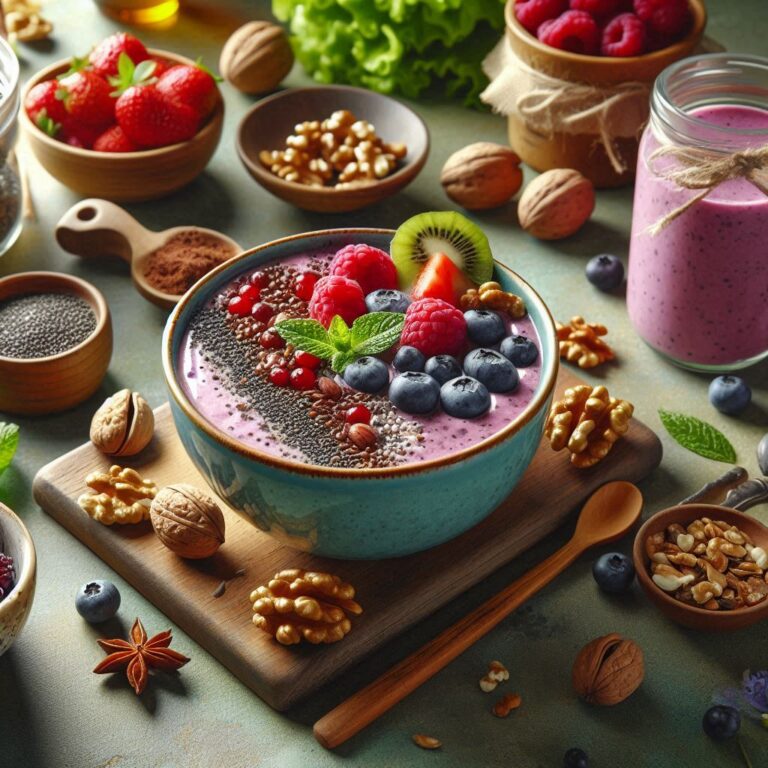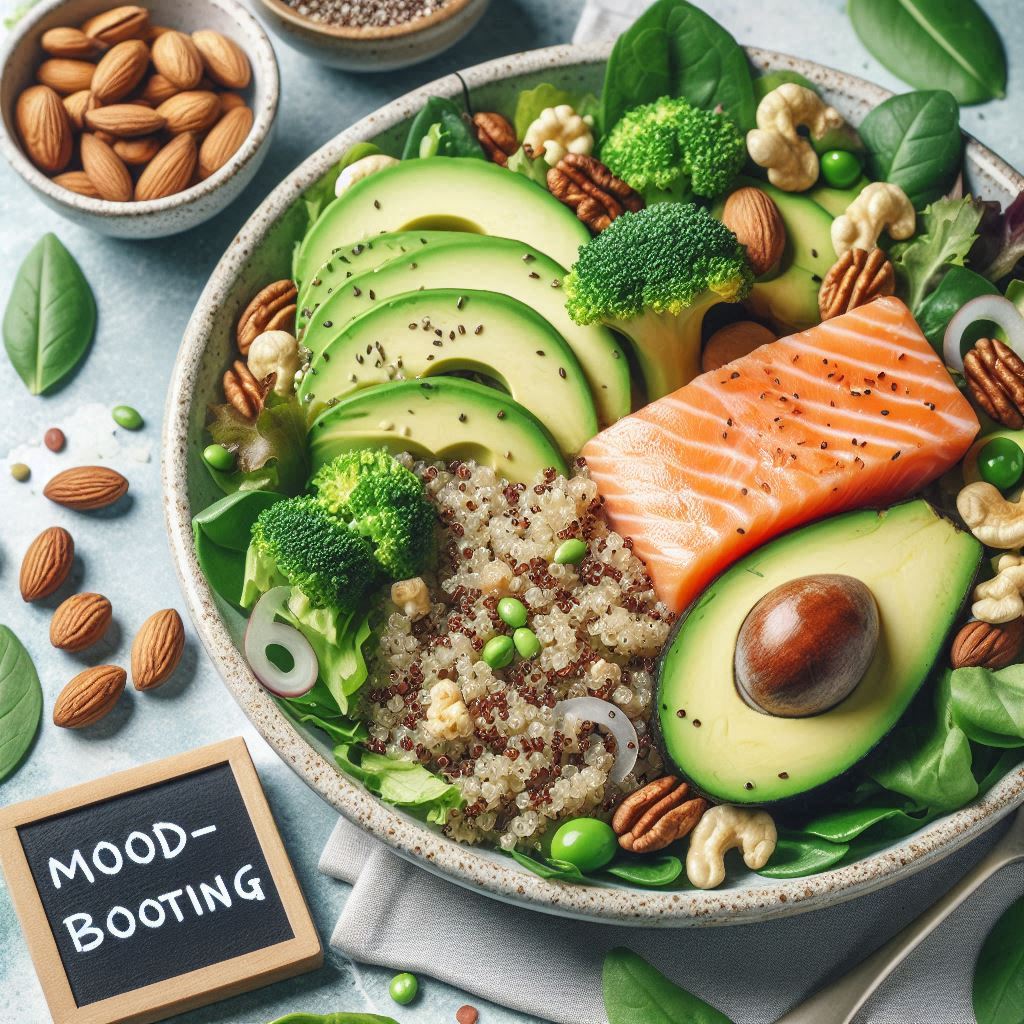7 Science-Backed Foods That Boost Mental Health
Transform Your Mood in 30 Days
Introduction: The Hidden Mental Health Crisis in Your Kitchen
Did you know that 1 in 5 adults experience mental health challenges, yet 80% never consider how their diet impacts their emotional wellbeing? If you’re struggling with mood swings, brain fog, or persistent anxiety, the solution might be simpler than you think—it’s sitting right in your refrigerator.
Recent neuroscience research reveals that certain foods can literally rewire your brain chemistry, reducing depression symptoms by up to 32% and anxiety by 25%. This isn’t about restrictive dieting; it’s about strategic nutrition for optimal mental health.
In the next 5 minutes, you’ll discover the exact foods that top psychiatrists recommend, plus a proven 30-day meal plan that thousands have used to transform their mental clarity and emotional stability. Ready to feel genuinely better? Let’s dive in.
1. The Gut-Brain Connection: Why Your Mental Health Starts in Your Stomach
Here’s what most people don’t realize: your gut produces 90% of your body’s serotonin—the “happiness hormone.” When your gut health suffers, your mental health follows.
The Sarah Story: Sarah, a 34-year-old marketing manager, experienced daily anxiety attacks and couldn’t focus at work. After three months of incorporating gut-healing foods (fermented vegetables, bone broth, and omega-3 rich fish), her anxiety decreased by 70%, and her productivity soared.
Key Gut-Brain Foods:
- Fermented foods: Kimchi, sauerkraut, kefir (contain probiotics that produce mood-regulating neurotransmitters)
- Prebiotic fiber: Garlic, onions, asparagus (feed beneficial gut bacteria)
Bone broth: Rich in glycine, which calms the nervous system

2. Omega-3 Fatty Acids: Nature’s Antidepressant
Clinical studies show omega-3 fatty acids work as effectively as some antidepressants for mild to moderate depression. These essential fats reduce brain inflammation and support neurotransmitter production.
Top Omega-3 Sources for Mental Health:
- Wild-caught salmon: 2,000mg omega-3s per serving
- Walnuts: Perfect brain-shaped superfood (coincidence? We think not!)
- Chia seeds: 5,000mg omega-3s per ounce
- Flaxseeds: Must be ground for absorption
Pro Tip: Aim for 2-3 servings of omega-3 rich foods daily for optimal brain function.
3. Blood Sugar Stability: The Mood Swing Solution
Your brain consumes 20% of your daily glucose intake. When blood sugar crashes, so does your mood, focus, and emotional resilience.
Lisa’s Transformation: Lisa from Portland eliminated her afternoon anxiety attacks by swapping sugary snacks for complex carbohydrates. Her energy levels stabilized, and she reported feeling “emotionally bulletproof” within two weeks.
Blood Sugar Balancing Foods:
- Complex carbohydrates: Quinoa, sweet potatoes, steel-cut oats
- Protein-rich foods: Eggs, Greek yogurt, legumes
- Healthy fats: Avocados, olive oil, nuts (slow glucose absorption)
4. Antioxidant Powerhouses: Brain Protection Foods
Oxidative stress accelerates brain aging and contributes to depression and anxiety. Antioxidant-rich foods act like bodyguards for your neurons.
Top Brain-Protecting Antioxidants:
- Blueberries: Improve memory and reduce depression risk by 23%
- Dark chocolate (70%+ cacao): Boosts endorphins and reduces cortisol
- Spinach: High in folate, linked to lower depression rates
- Turmeric: Curcumin crosses the blood-brain barrier, reducing inflammation
5. B-Vitamins: The Stress-Busting Vitamin Complex
B-vitamin deficiencies are strongly linked to depression, anxiety, and cognitive decline. These vitamins support neurotransmitter production and energy metabolism.
B-Vitamin Rich Foods for Mental Clarity:
- Leafy greens: Folate for mood regulation
- Eggs: Choline for brain development and memory
- Nutritional yeast: Complete B-complex in plant-based form
- Legumes: Steady release of mood-stabilizing nutrients
6. Magnesium: The Relaxation Mineral
Called “nature’s chill pill,” magnesium deficiency affects 68% of Americans and directly correlates with anxiety and insomnia.
Best Magnesium Sources:
- Pumpkin seeds: 168mg per ounce
- Dark chocolate: Delicious therapy
- Spinach: 157mg per cup
- Almonds: Perfect snack for stress relief
7. Hydration for Mental Health: The Forgotten Foundation
Even 2% dehydration impairs cognitive function and increases anxiety. Your brain is 75% water—neglect hydration at your mental health’s peril.
Hydration Strategy:
- Morning ritual: 16oz water upon waking
- Electrolyte balance: Add sea salt or coconut water
- Herbal teas: Chamomile, passionflower for evening calm
Target: Half your body weight in ounces daily

Your 7-Day Mental Health Meal Plan
Day 1-3: Foundation Phase
Breakfast: Omega-3 smoothie (spinach, banana, flaxseeds, almond milk, berries) Lunch: Quinoa Buddha bowl with salmon, avocado, and pumpkin seeds Dinner: Turmeric lentil stew with dark leafy greens Snack: Dark chocolate squares with walnuts
Day 4-7: Optimization Phase
Breakfast: Veggie scramble with eggs, spinach, and fermented vegetables Lunch: Mediterranean salad with olive oil, chickpeas, and omega-3 rich fish Dinner: Grass-fed beef or tempeh stir-fry with colorful vegetables Snack: Greek yogurt with berries and chia seeds
Supplements: Strategic Support (Not Replacements)
While whole foods come first, these supplements have strong research backing:
- Omega-3 EPA/DHA: 1,000-2,000mg daily
- Vitamin D3: 2,000-4,000 IU (especially in winter)
- Magnesium glycinate: 300-400mg before bed
- Probiotics: 10-50 billion CFU multi-strain
Important: Consult healthcare providers before starting supplements, especially if taking medications.
Tracking Your Progress: The Food-Mood Journal Method
For 30 days, rate your mood, energy, and mental clarity (1-10 scale) alongside your meals. You’ll quickly identify your personal brain-boosting foods and mood-disrupting triggers.
What to Track:
- Morning mood and energy levels
- Foods consumed (focus on brain-healthy options)
- Afternoon energy dips or spikes
- Evening stress levels and sleep quality
- Weekly anxiety and depression symptoms
The 30-Day Challenge: Your Mental Health Transformation
Week 1: Eliminate processed foods, add omega-3s daily Week 2: Introduce fermented foods, stabilize blood sugar Week 3: Maximize antioxidants, optimize hydration Week 4: Fine-tune portions, establish sustainable habits
Frequently Asked Questions
Q: How quickly will I see mental health improvements? A: Most people notice increased energy within 3-5 days, mood improvements within 1-2 weeks, and significant changes by 30 days.
Q: Can food really replace therapy or medication? A: Nutrition supports mental health but isn’t a replacement for professional treatment. Always work with healthcare providers for comprehensive care.
Q: What if I’m vegetarian or vegan? A: Plant-based sources like algae omega-3s, nutritional yeast, and legumes provide excellent mental health nutrients.
Conclusion: Your Mental Health Starts with Your Next Meal
Transforming your mental health through nutrition isn’t about perfection—it’s about progress. Every nutrient-dense meal is an investment in your emotional wellbeing, cognitive function, and overall life satisfaction.
The foods on your plate have the power to either fuel anxiety and depression or provide the building blocks for resilience, clarity, and joy. The choice is yours, and it starts with your very next meal.
Your Action Step: Choose three brain-boosting foods from this list and incorporate them into tomorrow’s meals. Your future self will thank you.
Remember: You’re not just feeding your body—you’re nourishing your mind, supporting your dreams, and investing in your happiness. That’s the true power of nutrition for mental health.
Ready to transform your mental health through nutrition? Save this guide, share it with someone who needs it, and take the first step toward a happier, healthier you today

